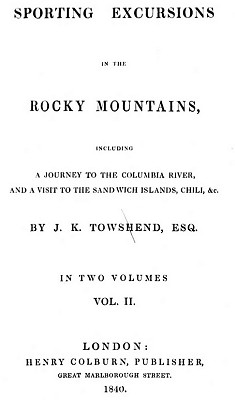
townsend : aquatic hawaiians, 1840
| home | catalogue | history | references | appendix |
 |
surfresearch.com.au
townsend : aquatic hawaiians, 1840 |
Internet Archive
http://archive.org/details/cihm_41995
[On Oahu]
Early on the
morning of the 5th, Mr. Reynolds, the deputy pilot, boarded us in a whale
boat manned by natives, and accompanied by two American gentlemen, residents
of
Page 28
the town of Honoruru
— Captain William S. Hinckley and P. A. Brinsmade, Esq.
Our anchor was
soon weighed, and with a fine, free wind, we rounded Diamond hill, and
passed along a beautiful indentation in the shore, called Waititi bay,
within sight of a large coral reef, by which the whole island is surrounded.
We very soon
came in view of the lovely sylvan looking village of Honoruru.
The shore below
the town from Waititi, to a considerable distance above, is fringed with
graceful cocoa-nut trees, with here and there a pretty little grass cottage,
reposing under their shade.
As we approached
the harbour, these cottages became more numerous, until at last they appeared
thickly grouped together with occasionally a pretty garden dividing them.
The fort, too,
which fronts the ocean, with its clean, white washed walls, and cannon
frowning from the embrasures, adds very much to the effect of the scene
; while behind, the noble hills and fertile valleys between, clothed with
the richest verdure, soften down and mellow the whole, and render the prospect
indescribably beautiful,
Page 29
On nearing the
shore, we observed some scores of curiously formed canoes, with large outriggers,
which had just put off, and were bound out on a fishing excursion.
A number of these
passed close to our vessel, and usually paused when opposite, that the
denuded mariners might have an opportunity of surveying the strangers,
and of bidding them welcome to their shores, by a loud and gay Aroha.
Near the bnd
a number of natives, of both sexes, were swimming and playing in the surf,
and diving to the bottom searching for echinoe and sea weeds, remaining
under the water for a considerable time, while their heels were seen moving
to and fro, above the surface.
Page 59
[On Kauai]
20th — We expected
to have left the island several days ago, but the Avon has not returned,
and she would not now be able to come, in consequence of a steady S. W.
wind which has prevailed for the last week.
Our ammunition,
and materials for the preparation of birds, are entirely exhausted, and
we cannot obtain a fresh supply, so we amuse ourselves in collecting shells
on the beaches, plants, fish, &c.
We are living
very comfortable in the house furnished us by the king, and we have become
completely domesticated in the agreeable family of Mr. Gulick.
We sometimes
spend whole days wandering along the rocky coast in search of shells, and
in these journeys we are always
accompanied by
a troop of boys and girls, and sometimes men and women, often to the number
of twenty or thirty.
They are indefatigable
shell-hunters, and prove of great service to
Page 60
us, being compensated
for earh one that they bring us, with pins or needles.
In their habits
they are perfectly amphibious, diving into the sea, and through the dashing
surf without the least hesitation, and exploring the bottom for an almost
incredible time without rising to breathe.
In these sub-marine
excursions they frequently find the echinus, with spines four or five inches
in length, and the black, lumpish
substance called
beche la mer.
Both these animals
are eaten by them as they are taken living from the water ; the spines
of the former are knocked off against the rocks, and the soft contents
of the case sucked out; the latter, after having the tough outside skin
removed, are eaten like biscuits to qualify the meal.
There is also
another sea animal which is considered by the natives a great delicacy,
the sepia or cuttle fish.
This is a large,
ill-looking creature, with an oval body, and eight or ten long arms or
tantacula within the cavity of the thorax is a sack, containing a fluid
resembling ink, and as the teeth are sunk into this.
Page 61
the black juice squirts into the face of the masticator, while the long feelers are twisting about his head like serpents.
Page 72
[Departing Oahu]
On the 26th of
March, we embarked on board the brig, May Dacre, upon our return
to the Columbia.
As we sailed
out of the harbour, and the lovely shore of the island became more and
more indistinct, I felt sad and melancholy
in the prospect
of parting, perhaps for ever,
Page 73
from the excellent friends who had treated rae with such uniform kindness and hospitality.
We have had an
accession to our crew of thirty Sandwich Islanders, who are to be engaged
in the salmon fishery on the Columbia, and six of these have been allowed
the unusual privilege of taking their wives with them.
Some six or eight
natives, of both sexes, friends and relatives of the crew, came on board
when we weighed anchor, and their parting words were prolonged until the
brig cleared the reef, and her sails had filled with the fresh trade wind.
They thought
it then time to withdraw, and putting their noses together after their
fashion, they bade their friends an affectionate farewell, and without
hesitation dashed into the sea, and made directly for shore.
I thought of
blue sharks, and tiger sharks, and shovel-noses, and would not have run
such a risk for all the wealth of the islands.
 |
Sporting Excursions in the Rocky Mountains- including a journey to the Columbia River and a visit to the Sandwich Islands, Chili, &c. Volume II H. Colburn, London, 1840. Internet Archive
|

| home | catalogue | history | references | appendix |